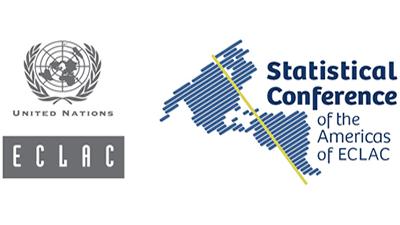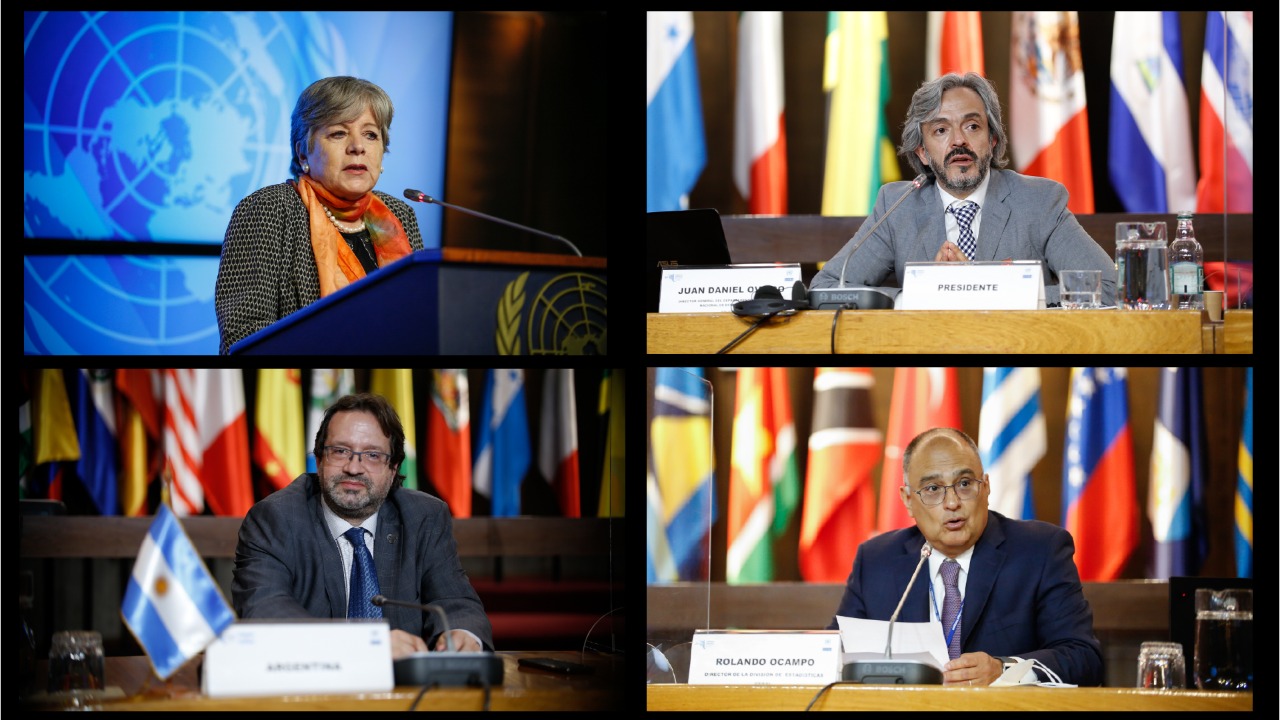
23-25 Nov 2021 Reunión virtual / Virtual meeting, Chile | Conferences and meetings of subsidiary bodies
This eleventh meeting of the SCA-ECLAC, as well as the side-events will be held virtually.

Authorities from Latin American and Caribbean countries reaffirmed their commitment to incorporating the gender perspective into statistical production and urged for breaking the statistical silence to achieve social justice, during today’s closing session of the Eleventh meeting of the Statistical Conference of the Americas (SCA) of the Economic Commission for Latin America and the Caribbean (ECLAC).
The gathering, which took place under a hybrid format (virtual and in person), brought together representatives from 33 Member States of ECLAC and 7 of its associate members, in addition to delegates from international and United Nations System organizations in the region, who pointed up the work carried out by national statistics offices in the last two years, despite the adverse context posed by the COVID-19 pandemic.
The closing session of this intergovernmental meeting was led by Alicia Bárcena, Executive Secretary of ECLAC; Marco Lavagna, Director-General of the National Institute of Statistics and Censuses (INDEC) of Argentina, in his capacity as the new Chair of the Statistical Conference of the Americas; and Juan Daniel Oviedo, Director-General of the National Administrative Department of Statistics (DANE) of Colombia and outgoing Chair of the SCA.
“The region’s statistical community is stronger and more active than ever,” Alicia Bárcena stated in her remarks, highlighting that “trust is the main asset of statistics, and any effort aimed at increasing and strengthening it is essential.”
In her speech, the senior United Nations official recognized the innovative nature of the Statistical Conference of the Americas, “an example and inspiration for the global arena due to its renewed commitment to ‘leave no one behind’ and to incorporate the gender perspective into all its work endeavors.”
ECLAC’s Executive Secretary underlined the SCA’s progress on working jointly to develop tools and criteria for evaluating and improving the quality of information sources, and she stressed the importance of furthering the development of ecosystem accounts. She also mentioned the collaborative work carried out with the rest of the United Nations system that is operating in the region to better coordinate cooperation activities and statistical technical assistance related to the Sustainable Development Goals’ indicators.
Furthermore, and coinciding with the International Day for the Elimination of Violence against Women – which is commemorated each year on November 25 – Alicia Bárcena warned that in Latin America and the Caribbean, justice and equality cannot be discussed without addressing the pandemic that has remained in the shadows for many years: gender-based violence against women and its most extreme form, femicide.
She noted that current femicide statistics still need greater standardization, which means that investing in their improvement is an imperative that corresponds to the duty of States to carry out due diligence. This process, which will enable States and societies to have solid, systematized and quality evidence, will allow for comprehensively strengthening the approach to one of the most severe human rights violations in the region, she added.
“Our message is clear: violence against women, no matter where it happens, is unacceptable. We have to break that statistical silence that makes social justice so elusive,” she concluded.
Meanwhile, Marco Lavagna, Director of Argentina’s INDEC, stressed the importance of the Statistical Conference of the Americas and the growth it has had as a platform for the statistical community of Latin America and the Caribbean.
“We have a great deal to contribute to each other and help each other with. The problems that occur in one country also occur in others. We can learn from our mistakes and virtues, and that is one of the main challenges, that the region’s statistical community continues to growth. That is my commitment,” he vowed.
Juan Daniel Oviedo, Director-General of DANE in Colombia, emphasized that one of the lessons left by the pandemic is that statistics are a voice that, in a neutral way, empower conversations and debates and enlighten the public policies that are so necessary for the region’s countries.
“Within ECLAC, there is an opportunity for us, through interdisciplinary dialogues, to be able to make official statistics more pertinent and attuned to that motor of equity that we must promote as societies in Latin America and the Caribbean,” he affirmed.
On the final day of the event, the countries participating in the Eleventh meeting of the Statistical Conference of the Americas approved a resolution in which, among other things, they reaffirm their commitment to incorporating the gender perspective into statistical production and highlight recent progress in strengthening and modernizing the legal frameworks for the production of official statistics in the region’s countries.
Furthermore, they urge for strengthening knowledge dissemination and horizontal cooperation through the Knowledge Transfer Network and exhort the Conference’s Member States to support the proper conduct of the 2020 round of population and housing censuses, both by applying international recommendations and standards in this area, as well as by mobilizing the necessary financial resources to carry them out.
The SCA’s Executive Committee for the 2022-2023 biennium is now composed of Argentina as Chair, along with Canada, Colombia, the Dominican Republic, Grenada, Italy and Jamaica.